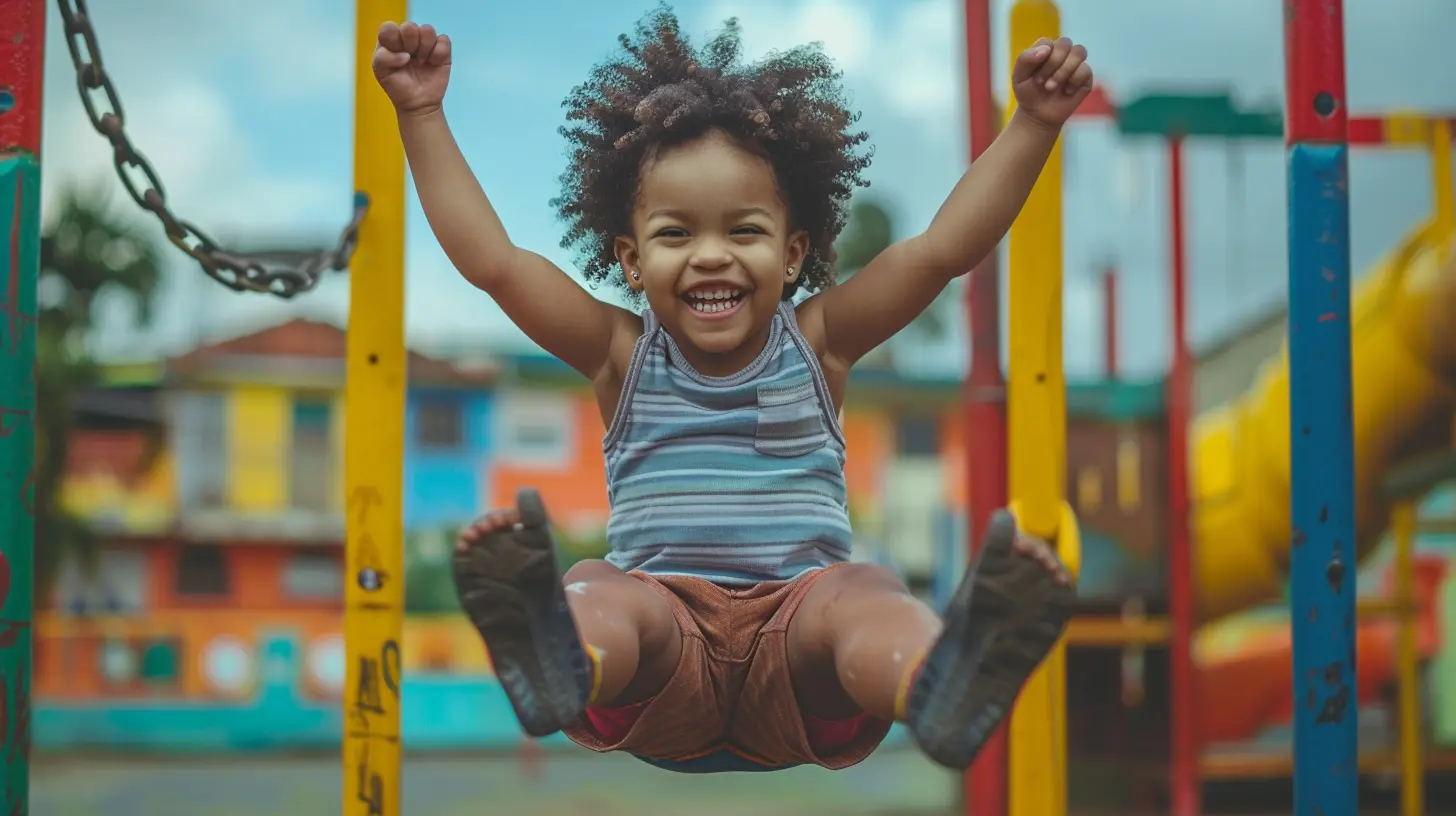Building Resilience: Teaching Kids to Bounce Back
19 February 2025
Life doesn’t always go as planned – and that lesson can be an important one for kids to learn early on. We all want to shield our children from hardship, but in reality, it’s through challenges that they grow stronger, more capable, and better prepared for the ups and downs of life. One of the most valuable skills we can teach our kids? Resilience.
Resilience is the personal quality that allows us to recover quickly from difficulties. It’s about bouncing back from disappointments, frustrations, and even heartbreak. For children, it’s not just a “nice to have” trait; it’s essential for their mental, emotional, and social development. But how exactly do we go about teaching this all-important skill?

What Is Resilience?
Resilience is often described as the ability to “bounce back” from adversity. Think of it like a rubber band. You stretch it out when faced with stress or hardship, but it snaps back into place afterward. For some kids, bouncing back is easy and natural. But for others, it feels overwhelming—they may break down at the first sign of struggle, whether it’s getting a bad grade, losing a soccer game, or facing peer rejection.But here's the good news: Resilience isn’t something we’re just born with. It’s a skill that can be learned and improved over time, just like riding a bike or mastering times tables. And as parents, we play a huge role in helping our kids build this resilience muscle.
Why Is Teaching Resilience So Important?
In today's fast-paced, high-pressure world, children face more challenges than ever before. Social media brings a new level of comparison, academic expectations can feel crushing, and let’s not even get started on the pandemic stress on top of everything else.Kids who haven’t developed resilience might struggle more with anxiety, have difficulties forming positive relationships, or even show signs of depression in the face of adversity. On the flip side, resilient kids can navigate life’s challenges with confidence and optimism. They’re more likely to stay motivated, take setbacks in stride, and ultimately thrive, even when the going gets tough.
As parents, we want our children to be emotionally agile and adaptable. By teaching them resilience, we’re equipping them with the emotional armor they’ll need to face life’s inevitable bumps and bruises. So how do we go about fostering this vital skill?
How to Build Resilience in Kids: A Step-by-Step Guide
1. Model Resilience Yourself
Let’s face it: Kids are master imitators. They watch what we do, listen to what we say, and often mimic our attitudes toward life. So, if we want our kids to be resilient, we need to model that behavior ourselves.When you face a personal challenge, whether it’s work stress or dealing with a difficult situation, narrate your thought process to your child. Let them see how you manage setbacks:
- “I’m feeling really frustrated right now, but I know I’ll figure this out.”
- “I didn’t get the result I wanted, but I’m going to try again.”
By demonstrating positive self-talk and showing perseverance, you are modeling resilience in real-time.
2. Encourage Problem-Solving Skills
It’s tempting to swoop in and fix every problem for our kids. After all, we don’t like to see them struggle! But each time we solve an issue for them, we rob them of the chance to problem-solve independently.Instead of offering immediate solutions, encourage your child to brainstorm ideas on their own when they’re stuck. Ask thought-provoking (but simple) questions like:
- “What do you think we could try to fix this?”
- “How might you handle this differently next time?”
By putting the ball back in their court, you encourage critical thinking and confidence. You'll notice that with each small success, your child will become more willing to tackle future challenges on their own.
3. Emphasize the Learning Process, Not Just the Result
Kids today often feel enormous pressure to perform perfectly, whether on the sports field, in school, or in social situations. This can lead to anxiety and a fear of failure. But here’s the thing: Failure is a teacher.Instead of focusing solely on winning or getting straight A’s, emphasize effort and the learning process itself:
- “It’s okay if you didn’t win the game! What did you learn from it?”
- “You worked so hard studying for that test, and that’s what matters the most.”
By shifting the focus from results to effort, you help your child understand that setbacks are just part of the journey toward growth. Resilience isn’t about never failing; it’s about what we do after we fail.
4. Teach Emotional Regulation
One of the hallmarks of resilience is the ability to regulate emotions in times of stress. Kids who react with explosive anger or overwhelming sadness may have a harder time bouncing back from difficult situations.Help your child identify their emotions and give them tools to manage them. This can be as simple as teaching them to take deep breaths or helping them label their feelings—“I see you're really disappointed right now. That’s okay."
You could also introduce them to mindful practices, like journaling, drawing, or even a few moments of quiet reflection when things feel too big to handle. The key is helping them understand that it’s okay to feel upset, but we don’t want those emotions to rule our actions.
5. Praise Resilience, Not Just Success
The next time your child demonstrates resilience—whether they handle a tough situation calmly or keep trying after failing—be sure to acknowledge and praise that effort:- “Wow, I’m really proud of how you kept your cool after that argument.”
- “You showed a lot of determination by trying again after that mistake.”
Praise can reinforce resilient behavior, helping your child recognize when they’re showing strength, even when the outcome isn’t perfect.
6. Create Opportunities for Failure
This one might sound counterintuitive. But every little bump in the road is an opportunity for growth. Let your kids fail sometimes, especially when the stakes are low. Maybe they’ll lose a board game, or not get picked for the lead in the school play.The earlier they learn that failure is part of life, the more equipped they’ll be to handle bigger setbacks in the future. Instead of shielding them from every potential failure, give them the emotional tools to manage it. After the initial disappointment, help them reflect on what they can do differently next time.
The Role of Grit in Resilience
Have you ever heard the phrase, “slow and steady wins the race?” Well, that’s where grit comes in. Grit is a close cousin of resilience, and it refers to perseverance and passion for long-term goals.While resilience helps kids bounce back from specific setbacks, grit enables them to stay on course when pursuing something difficult over the long haul, despite continuous challenges or failure. In short, grit is about not giving up, even when things feel tough.
So how can you cultivate grit in your child? Encourage them to set long-term goals and work toward them, even when progress feels slow. Maybe they want to improve at playing an instrument or learn a new sport. Whatever the goal, help them break it into smaller, manageable milestones and celebrate their persistence at each step.
In the long run, resilience and grit together form the foundation for a strong, adaptable, and determined child.
Building Resilience Takes Time (and Patience)
It’s essential to remember that resilience isn't built overnight. It’s a process that requires consistent practice, patience, and encouragement. Children are like little plants; they need the right balance of sunlight, rain, and healthy soil to grow. Resilience is the healthy soil for emotional development.As with any parenting endeavor, there will be moments where everything seems to click—and others where things feel frustratingly slow. But rest assured that every effort you make to instill resilience will pay off, whether it's next week or years down the road.
At the end of the day, it’s not about creating a problem-free life for our kids. It’s about giving them the tools, mindset, and courage to face life’s inevitable challenges head-on. So next time your child faces a setback, think of it as an opportunity to teach them how to bend, not break.
Conclusion
Teaching kids to be resilient is one of the greatest gifts we can give them. By modeling resilience ourselves, encouraging problem-solving, praising effort, and allowing for failure, we help cultivate children who are equipped to handle life’s challenges with grace and perseverance.Life will throw curveballs, no doubt about it. But our children will be ready—they’ll bounce back, stronger and wiser each time.
all images in this post were generated using AI tools
Category:
Building ConfidenceAuthor:

Zelda Gill
Discussion
rate this article
8 comments
Vireo Acevedo
This article offers invaluable insights on fostering resilience in children. By teaching them to embrace challenges and learn from failures, we equip them with essential life skills. Practical strategies and relatable examples make the concepts accessible and engaging for parents seeking to nurture strong, adaptable kids.
March 13, 2025 at 5:40 PM

Zelda Gill
Thank you for your thoughtful feedback! I'm glad you found the insights and strategies helpful for fostering resilience in children.
Uriel Vaughn
Loved this article! Teaching kids resilience is so important. It’s all about those little moments—like when they tumble and get back up. Every small lesson helps them build confidence for life's challenges!
March 8, 2025 at 5:24 PM

Zelda Gill
Thank you! I'm glad you enjoyed the article. Those small moments truly do lay the foundation for resilience and confidence in our kids!
Raegan McVeigh
Thank you for this insightful article! Teaching our kids resilience is crucial for their growth. I appreciate the practical tips and heartfelt reminders that empower us to guide them through life's challenges with love.
March 7, 2025 at 4:39 PM

Zelda Gill
Thank you for your kind words! I'm glad you found the article helpful in fostering resilience in children.
Karen Barker
Resilience isn't a luxury; it’s a necessity. Let’s stop shielding our kids from every setback. Embrace the messiness of failure—it's where real growth happens. Equip them with the tools to face challenges head-on. Teaching resilience today builds the confident leaders of tomorrow. Let’s raise warriors, not wimps!
March 7, 2025 at 3:27 AM

Zelda Gill
Absolutely! Embracing challenges is vital for growth. By teaching kids to face setbacks, we empower them to become resilient leaders. Let's foster that warrior spirit!
Josie McGillivray
Teaching kids resilience is a gift that lasts a lifetime. By encouraging them to embrace challenges, express emotions, and learn from failures, we empower them to grow stronger and navigate life's ups and downs with confidence.
March 2, 2025 at 4:02 AM

Zelda Gill
Thank you for highlighting the importance of resilience! Embracing challenges and learning from failures truly does empower children for a lifetime.
Onyx McClellan
Encourage open communication and let kids face manageable challenges. This builds confidence and teaches them resilience for life's ups and downs.
February 25, 2025 at 3:46 PM

Zelda Gill
Absolutely! Open communication and manageable challenges are key in fostering resilience and confidence in children.
Patience Erickson
Teaching kids resilience is essential for their development. By encouraging problem-solving, fostering a growth mindset, and providing a supportive environment, parents can equip children with the tools they need to overcome challenges and navigate life's ups and downs effectively.
February 24, 2025 at 5:57 PM

Zelda Gill
Thank you for your insightful comment! I completely agree that teaching resilience through problem-solving and a supportive environment is crucial for children's development.
John Riley
Teaching our kids resilience is a gift that lasts a lifetime. By encouraging them to embrace challenges and learn from setbacks, we empower them to navigate life's ups and downs with confidence. Together, we raise strong, adaptable children!
February 19, 2025 at 4:22 AM

Zelda Gill
Absolutely! Teaching resilience equips kids with essential life skills, fostering confidence and adaptability for future challenges. It's a priceless gift for their growth!
MORE POSTS

Recognizing Signs of Trouble: When Your Teen Needs Extra Support

Using Positive Language to Encourage Cooperation

The Importance of Setting Boundaries for Teens

The Power of Saying “No” as a Mom

How to Build Self-Esteem in Your Teenage Daughter or Son

Creating a Peaceful Morning Routine for You and Your Children